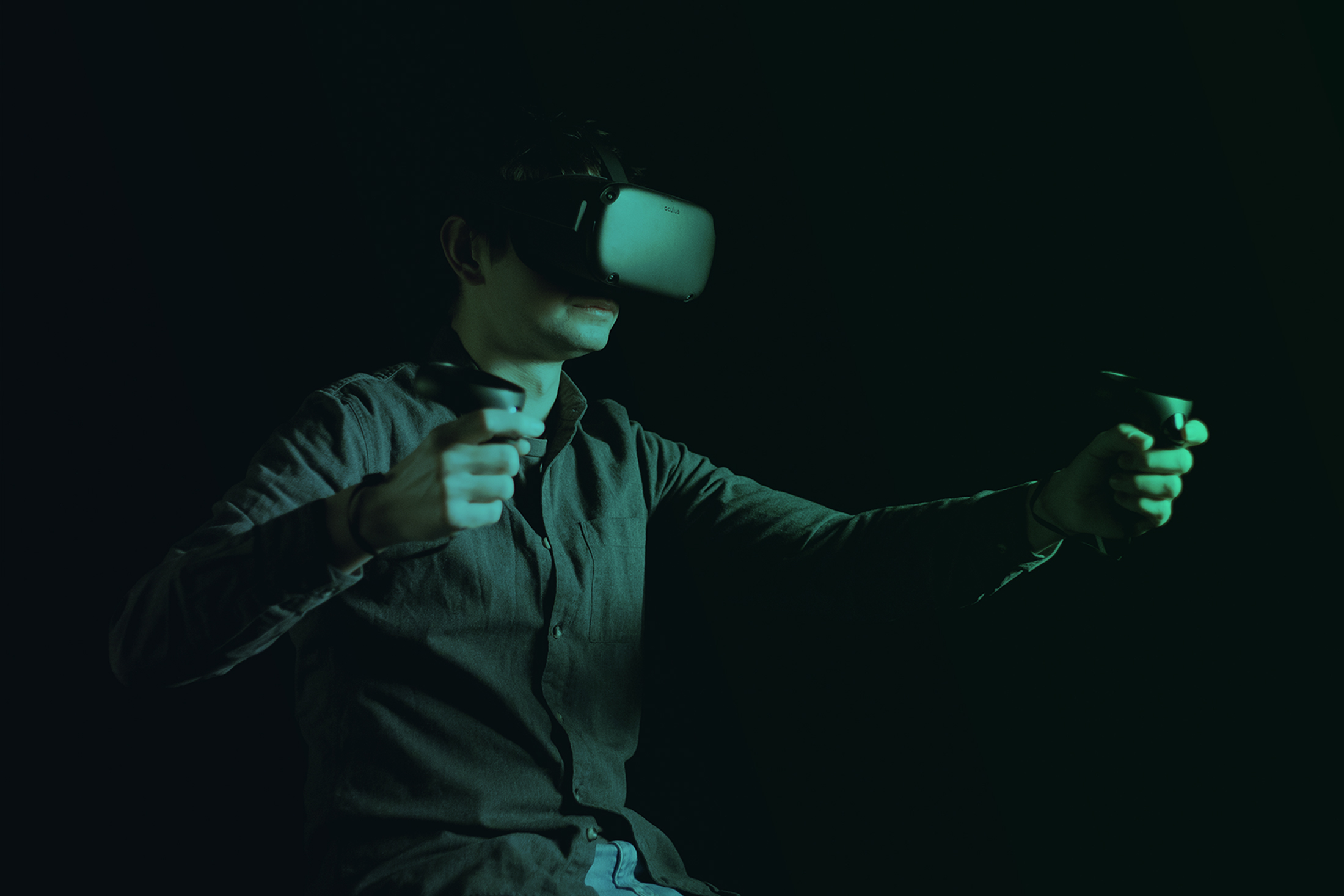Publications
The library contains publications providing information on recent and emerging virtual reality technologies and their application in rehabilitation. Details can be found on authors, research, technology, area of impact as well as location.
VR4REHAB is providing this library as a service for all stakeholders in rehabilitation to showcase past, current and future work with neither assessment of quality of content nor evaluation of claims made by the original authors. Therefore, reference to any work or products in the library does not constitute an endorsement or recommendation by VR4REHAB.
"The objective of this study was to use a “virtual mirror” that scaled visual movement feedback to assess body perception during active movement in military personnel with CNSLBP (n = 15) as compared to military healthy control subjects (n = 15)."
"This study aimed to determine the effectiveness of a tailored OTAGO/FaME-based strength and balance Exergame programme for improving balance, maintaining function and reducing falls risk in older people."
"The main purpose of this study was to investigate the preliminary effects of game-based breathing exercise (GBE) on pulmonary function in stroke patients."
"In this study, augmented reality was used to display a triage algorithm and telemedicine assistance was enabled to compare the duration and quality of triage with a conventional one."
"The iStoppFalls project developed an Information and Communication Technology-based system to deliver an unsupervised exercise program in older people’s homes."
"This quasi-experimental, within-subjects pilot clinical trial was designed to replicate and extend the study of cognitive benefits for MCI by improving upon our prior interactive Physical and Cognitive Exercise Study (iPACESTM v1.0) by increasing the usability of the neuro-exergame and exploring possible underlying neurobiological mechanisms."
"The overarching purpose of this pilot study was to evaluate the acceptability and effects of an individualized telePT intervention using exergaming."
"This study aimed to determine whether vestibular rehabilitation using active video games (Exergames), including promoted head turns and unsupported locomotion, may facilitate vestibular compensation and gait in subjects with one-sided chronic peripheral vestibular hypofunction (cPVH)."
"This review aims to provide a comprehensive overview of the efficacy, limitations, and future of e-health treatments for anxiety."
Review of a preclinical eyeblink classical conditioning model of PTSD in which conditioning and hyperarousal can both be extinguished.
"The present study explores, for the first time, the contribution of sense of voice presence, together with session-by-session reduction of anxiety and paranoid attributions about the avatar, to changes in primary outcomes following AVATAR therapy."
Objectives of this study were to verify the feasibility of detecting compensation online using machine learning methods and pressure distribution data, to investigate whether compensations of stroke survivors can be reduced by audiovisual or force feedback and to compare the effectiveness of audiovisual and force feedback in reducing compensation.
Physiogame, a newly developed video game using the Game-Trak 3D interactive game controller, combines correct PSSE performance with gaming.
To compare a 6-week virtual reality (VR) rehabilitation programme with a conventional rehabilitation programme in patients with Parkinson’s disease.
To compare participation and subjective experience of participants in both home-based multiuser virtual reality (VR) therapy and home-based single-user (SU) VR therapy.
